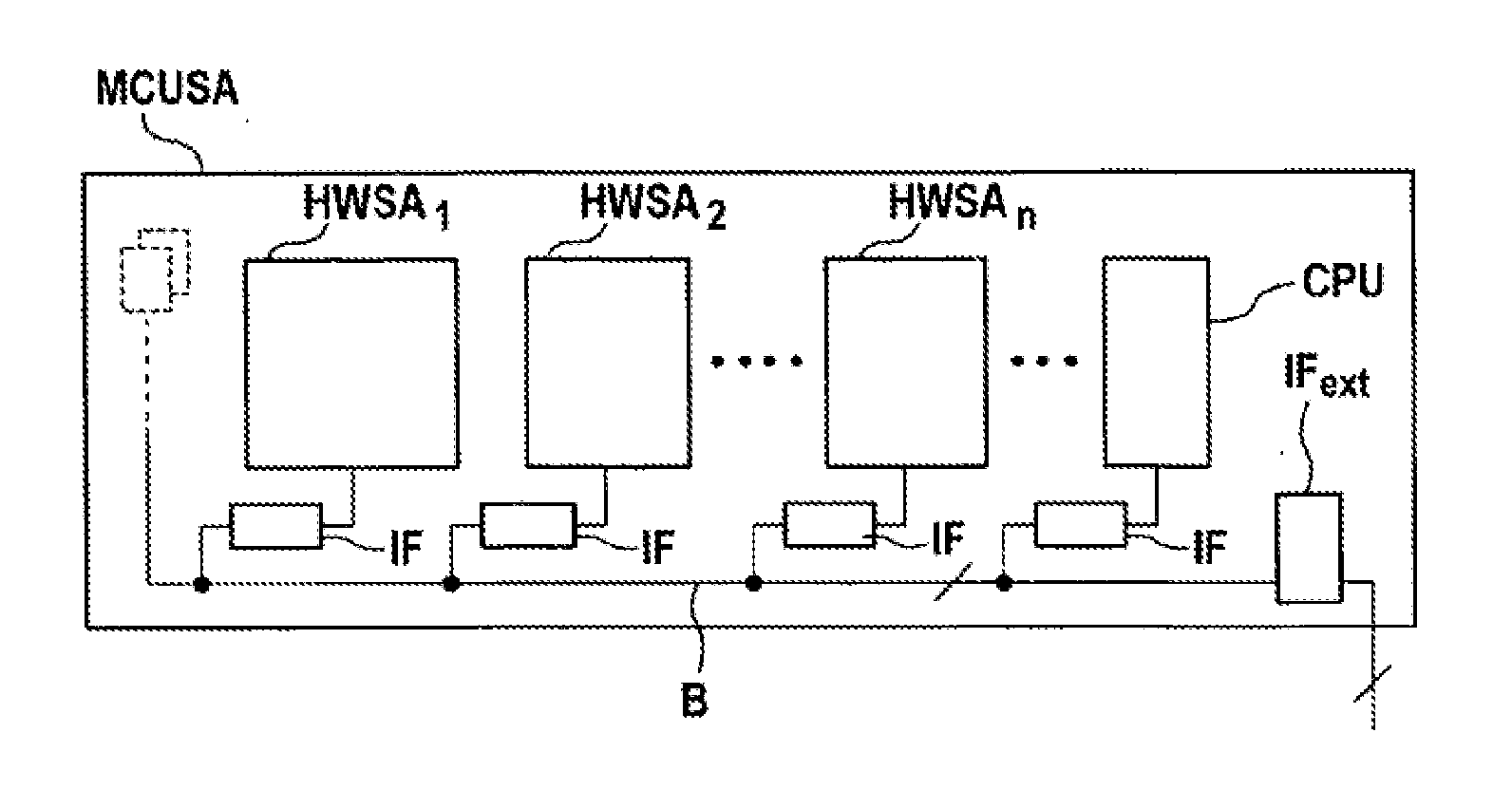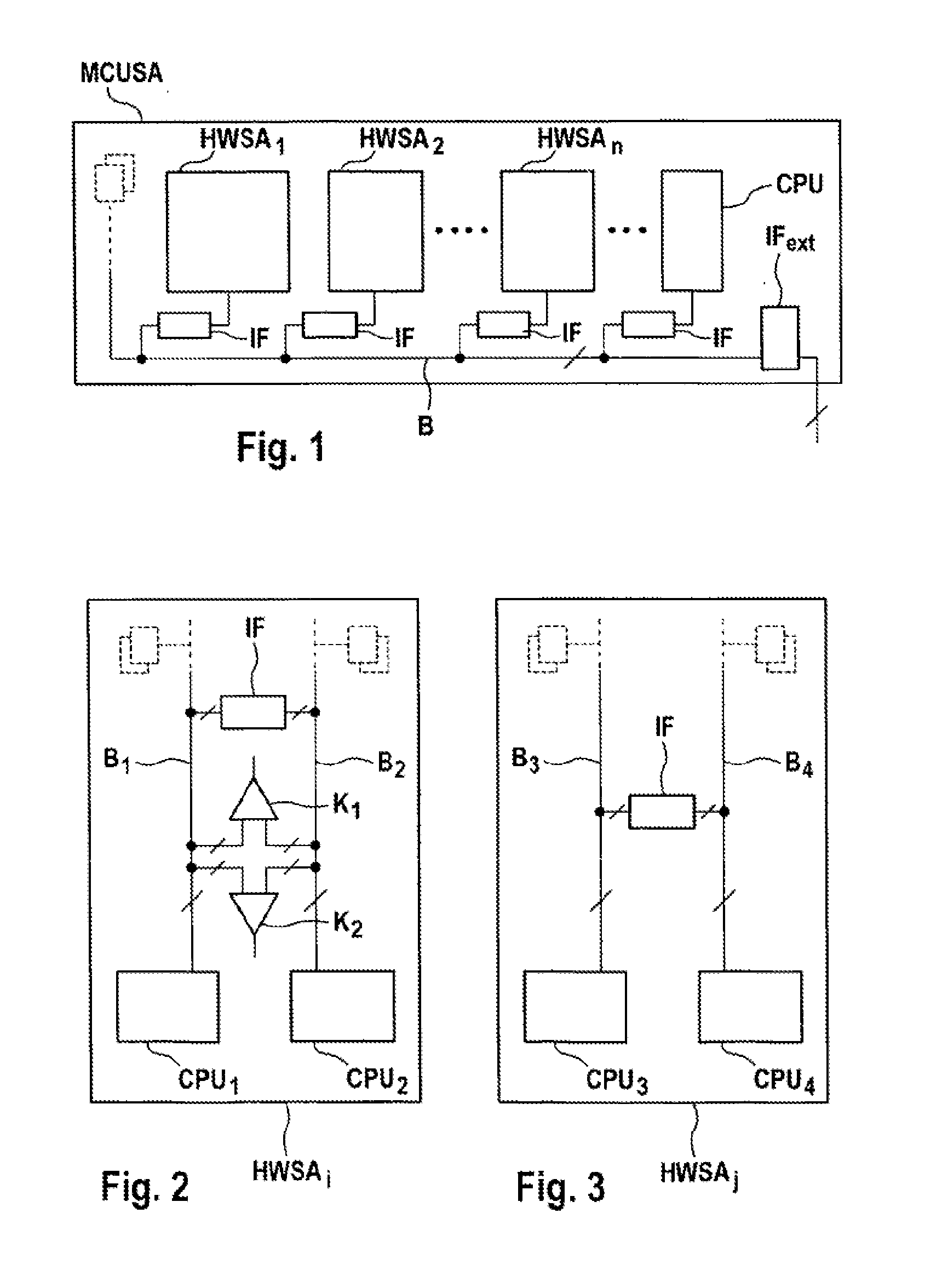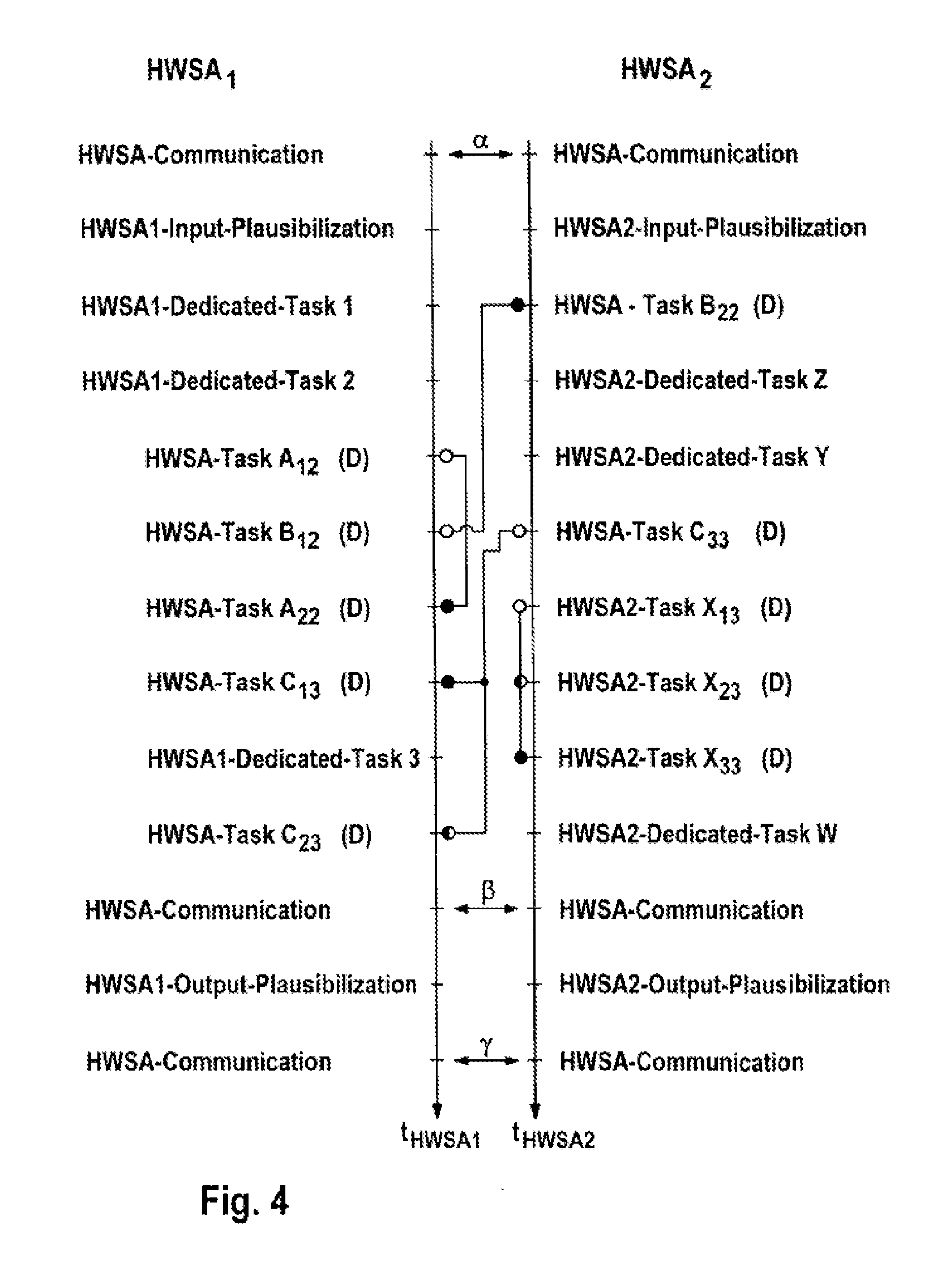Microprocessor System Having Fault-Tolerant Architecture
a microprocessor and architecture technology, applied in the field of microprocessor systems, can solve the problems of unspecified behavior, translation faults, and architectures that cannot be used to recognize “defects” or “design faults” in a piece of software,
- Summary
- Abstract
- Description
- Claims
- Application Information
AI Technical Summary
Benefits of technology
Problems solved by technology
Method used
Image
Examples
Embodiment Construction
[0056]A microprocessor system MCUSA as shown in FIG. 1 comprises a plurality of duplicated basic elements which, as inherently safe microprocessor modules HWSAi (i=1, . . . i=n), also called CPU modules, have at least two microprocessor cores CPU1 and CPU2 or CPU3 and CPU4, as can be seen from FIGS. 2 and 3. In addition, this microprocessor system MCUSA may comprise at least one microprocessor CPU which, as a standard microprocessor (that is to say is not inherently safe), has just one core (single core processor). Each of these microprocessor modules HWSAi (i=1, . . . i=n) and the standard microprocessor CPU are connected to a central bus system or network B via an interface IF, with an interface IFext being able to be used for expansion for the connection of further components, for example hardware modules. It is also possible for the microprocessor modules HWSAi (i=1, . . . i=n) and possibly also the standard microprocessor CPU to be fully or partially networked to one another by...
PUM
 Login to View More
Login to View More Abstract
Description
Claims
Application Information
 Login to View More
Login to View More - R&D
- Intellectual Property
- Life Sciences
- Materials
- Tech Scout
- Unparalleled Data Quality
- Higher Quality Content
- 60% Fewer Hallucinations
Browse by: Latest US Patents, China's latest patents, Technical Efficacy Thesaurus, Application Domain, Technology Topic, Popular Technical Reports.
© 2025 PatSnap. All rights reserved.Legal|Privacy policy|Modern Slavery Act Transparency Statement|Sitemap|About US| Contact US: help@patsnap.com



